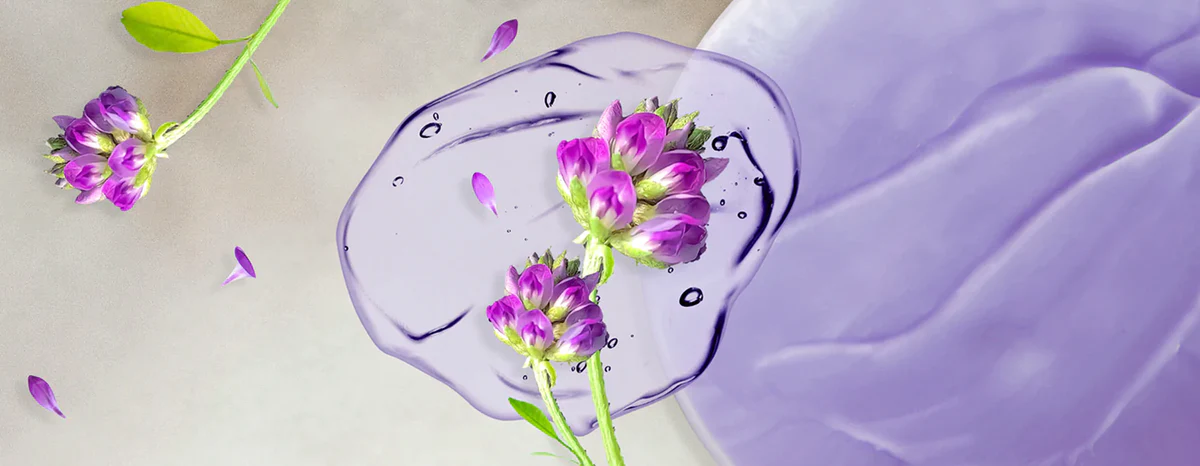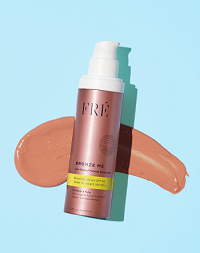
כל המוצרים
Understanding the Differences between Bakuchiol and Retinol
מאת Lorisa Hasenbush אוגוסט 30, 2022

There is a new kid on the skincare block—bakuchiol, an all natural alternative to retinol. Yes, retinol has been the gold standard in anti-aging skincare for over 30 years, but it has always been a bit harsh on skin. Let’s discuss the similarities and differences of these two powerful ingredients to understand why bakuchiol is becoming a rising star in the anti-aging world.
Where do they come from?
Retinol is an antioxidant derived from Vitamin A. The retinol that is found in skincare can be sourced from beef, chicken liver, eggs, and fish, but often it is synthetically produced in a lab. Bakuchiol, on the other hand, is an all natural oil extracted from the seeds of the Psoralea corylifolia plant, also known as babchi. It naturally grows in China, India and Pakistan.
How do they improve skin?
Both retinol and bakuchiol visibly decrease the signs of aging. They both promote collagen production and stimulate skin cell turnover. As a result, they both even skin tone, smooth skin texture, reduce wrinkles and lines, repair sun-damaged skin, and lighten dark spots. As you can see, both ingredients are true workhorses.
They both even skin tone, smooth skin texture, and reduce wrinkles and lines.

Do they have any side effects?
This is where retinol and bakuchiol really start to differ. Retinol is known for being harsh on skin. It can lead to dryness, peeling, and irritation. In addition, retinol makes skin more sensitive to the sun, so retinol users must use broad spectrum sunscreen with a high SPF and try to minimize their sun exposure. Conversely, bakuchiol has no known side effects. Bakuchiol users do not have to worry about any negative reactions.
Retinol can lead to dryness, peeling, and irritation, while bakuchiol has no known side effects.
Who should use these ingredients?
Both retinol and bakuchiol reduce the signs of aging, so they are great ingredients to add to any anti-aging skincare routine. But keep in mind that retinol tends to be harsh. It should not be used by people with sensitive skin and people who suffer from rosacea or eczema. In addition, retinol is not safe for women who are pregnant, planning to get pregnant, or breastfeeding. Bakuchiol is suitable for all skin types, since it is more gentle on skin. It also is considered to be safe to use during pregnancy.

How should retinol or bakuchiol be incorporated into a skincare routine?
Since retinol can make skin sensitive to sunlight, it should only be applied at night. Wash with a gentle cleanser, then apply the retinol, and finish your night routine with a moisturizer. Skin has to adjust to this potentially irritating ingredient, so if you are new to using retinol, begin by using it just once or twice a week on non-consecutive nights. If your skin is not irritated, you can gradually increase the frequency of your applications, but do not increase the amount of retinol that you are using. If you are experiencing any redness or irritation, you should skip the next application. You can work up to using retinol for two nights and then taking one night off, and so on. It is not recommended to use retinol every night.
Bakuchiol is gentle enough that it can be used up to twice a day. If you are using bakuchiol in a serum, apply it before your moisturizer. If it is an ingredient in your moisturizer, apply it after your serum. If you are using bakuchiol as an oil, apply it at night as the last step of your skincare routine.
With any anti-aging skincare routine, a broad spectrum sunscreen with SPF 30 or greater is essential. Sun exposure is the leading cause of signs of aging in skin. When using retinol or bakuchiol in an anti-aging skincare routine, daily UV protection is the best way to maintain a youthful complexion and prevent more sun damage from occurring.

The bottom line
Both retinol and bakuchiol are powerful ingredients that reduce the signs of aging. Unfortunately, retinol can cause dryness and irritation as a side effect, and it is not recommended for people with sensitive skin or some skin disorders. In addition, it is not safe for pregnant women or breastfeeding mothers. Contrarily, bakuchiol does not have side effects and can safely be used by all women of all skin types. As bakuchiol seems to be the universal answer to all who want a more youthful complexion, it is no surprise that it is pushing retinol out of the spotlight.
|
Bakuchiol |
Retinol |
|
|
Reduces the signs of aging |
✔️ |
✔️ |
|
Stimulates collagen production |
✔️ |
✔️ |
|
Increases cell turnover |
✔️ |
✔️ |
|
Vegan |
✔️ |
X |
|
Pregnancy & breastfeeding friendly |
✔️ |
X |
|
Good for sensitive and acne-prone skin |
✔️ |
X |
|
Cruelty-free |
✔️ |
X |
|
Natural ingredient |
✔️ |
X |
הסכמת Cookies
אתר זה עושה שימוש בקבצי עוגיות לצרכים תפעוליים, לניתוח שימושים, לשיפור חווית המשתמש ולהתאמה אישית של תוכן ופרסום ממוקד.
אנו עשויים לשתף מידע אודותיך עם ספקי פרסום חיצוניים כדי להציג לך מודעות רלוונטיות לתחומי העניין שלך.
המשך הגלישה באתר מהווה הסכמה לשימוש בקובצי
Cookies בהתאם למדיניות שלנו.
למידע נוסף והרחבה, עיין/י במדיניות הפרטיות.



השאירי תגובה
תגובות צריכות לעבור אישור לפני פרסומן